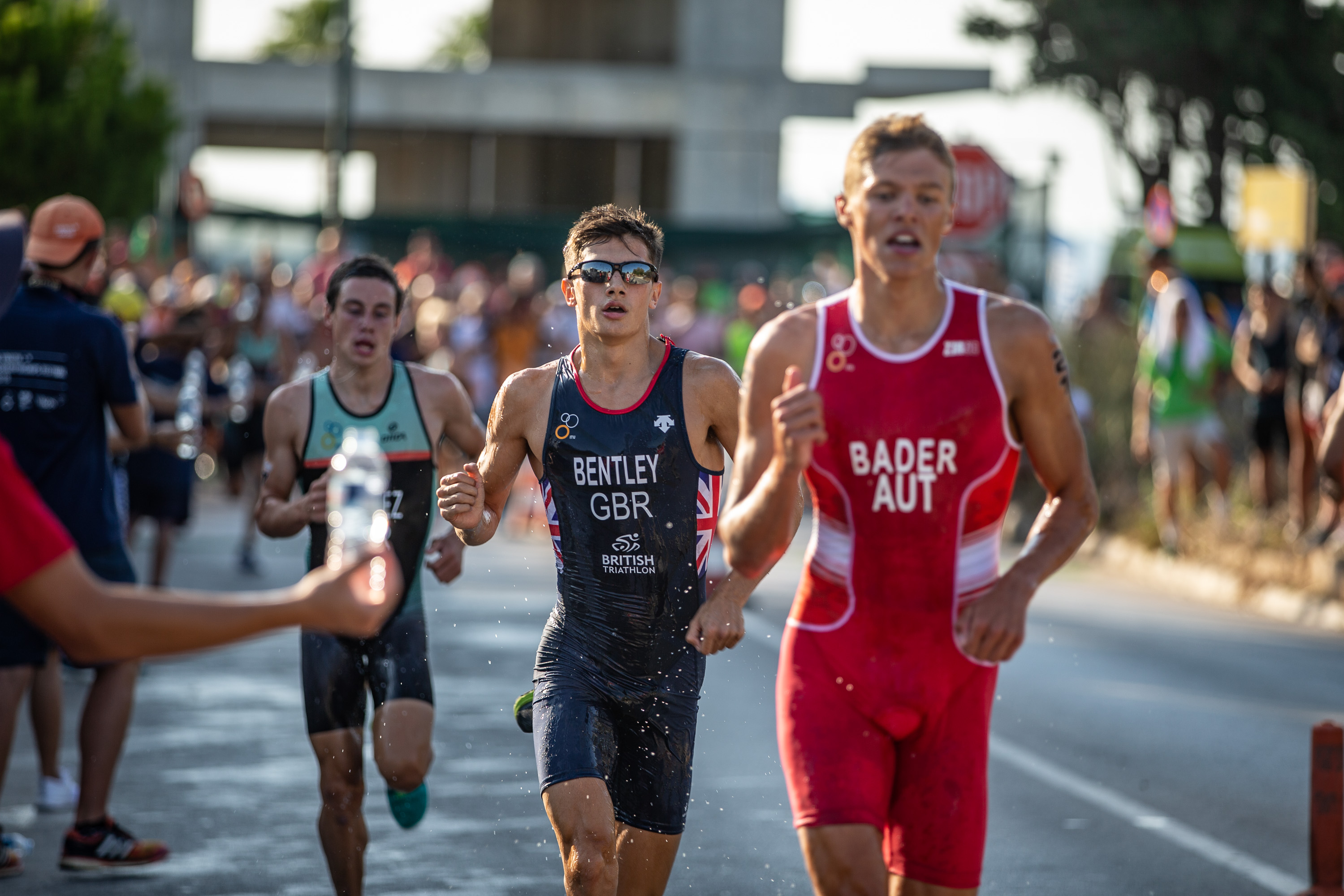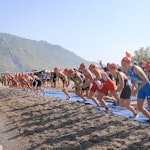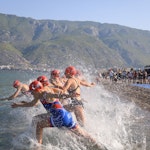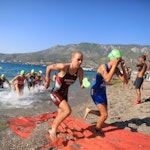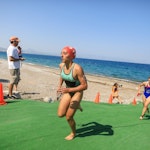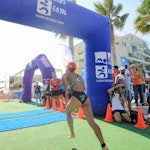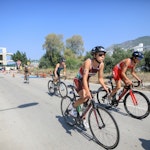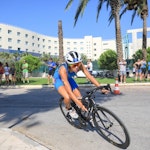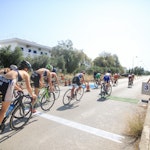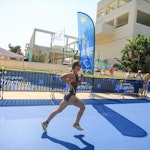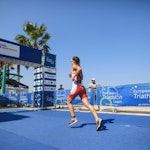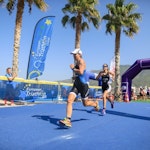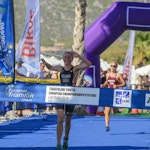32 Nations,182 athletes; a weekend of sharing knowledge and experiences
In Loutraki, the 3rd edition of the ETU European Youth Championships & Festival took place. It is a unique event in its kind as it gives the opportunity to every European Triathlon Federation to join four days of sport and cultural events in order to promote, not only the sport activities but also the friendship among young boys and girls at the age of 14-17.

The event attracted 32 National Federations with more than 180 young Athletes.
Furthermore, coaches and parents had the opportunity to enjoy the well-structured agenda that has combined the sport events, a visit to the historical side of Heraion, a conference on anti-doping and of course… the beach party.
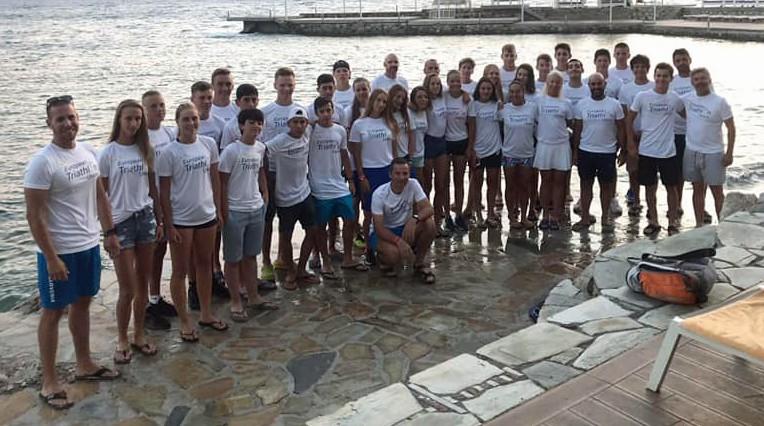
Before the Festival, many of our Federations, that are part of the European Development Program, had the chance to attend a Development Camp in Loutraki, professionally organised and managed by the best International Triathlon coaches.
With regard to the races, because let’s face it, whenever you put such a large number of athletes together, they will always want to see who is stronger, faster, fitter, then we were able to see some very encouraging results.
It was ICARUS-Sports who covered the event. Click the link to see the video.
With so many athletes present, it was necessary to have a series of races leading up to the final. With last-minute adjustments being made to the bike course, the race was saved and the LOC, technical officials and volunteers worked really hard to ensure as good a delivery as possible with limited resources.
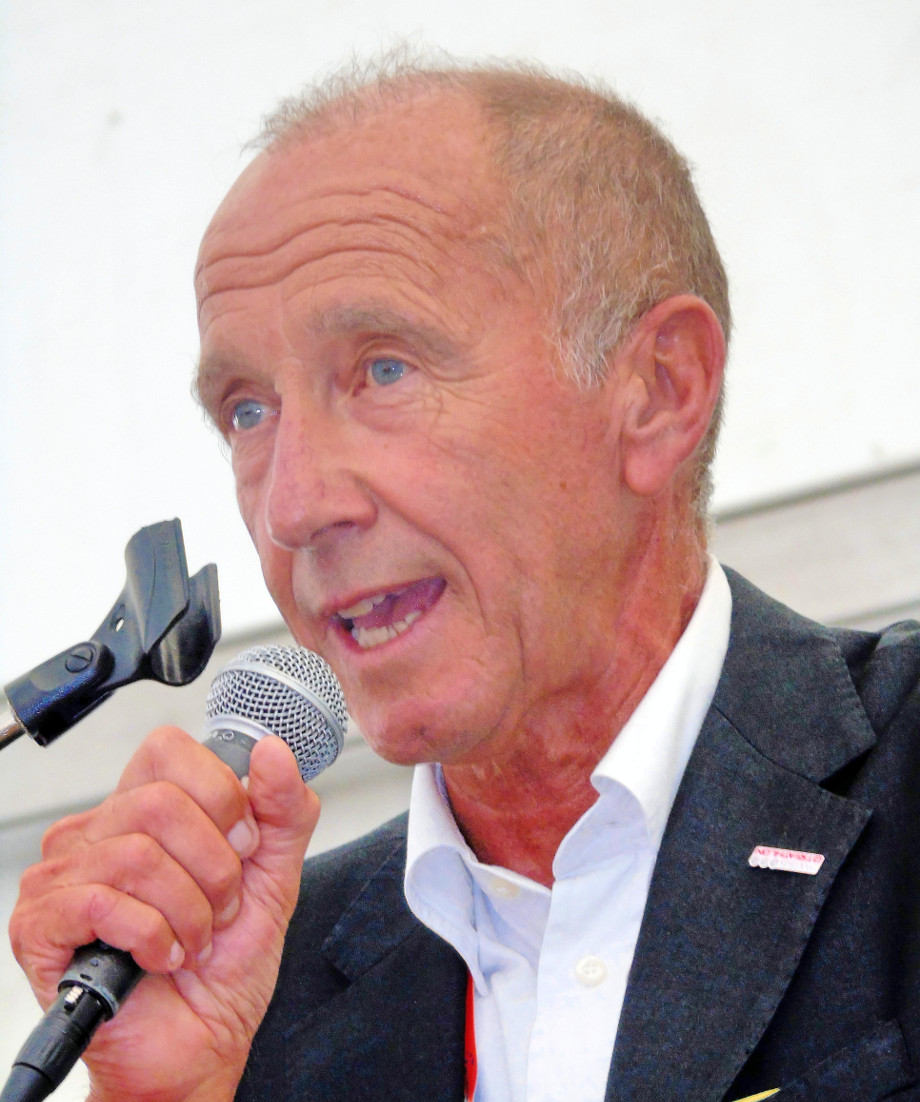
Even ETU President, Renato Bertrandi, was out on duty, with a red flag to help manage the bike course. Click his name to see the interview he gave.
Before the races, he told us about the ethos behind the Youth Festival. With 43 federations in the ETU there is a huge variety of skills and abilities. Some federations are really strong and some are just beginning to lay the foundations of development of the sport. Opportunities like this, where we have 182 athletes and so many national federations, with their coaches and with a solid team of technical officials, we can experience the transfer of knowledge and ideas between all those present. For the young athletes it is also a magnificent opportunity to create friendships and make contacts early on in their international careers and to race against and alongside athletes who will be with them for many, many years to come.
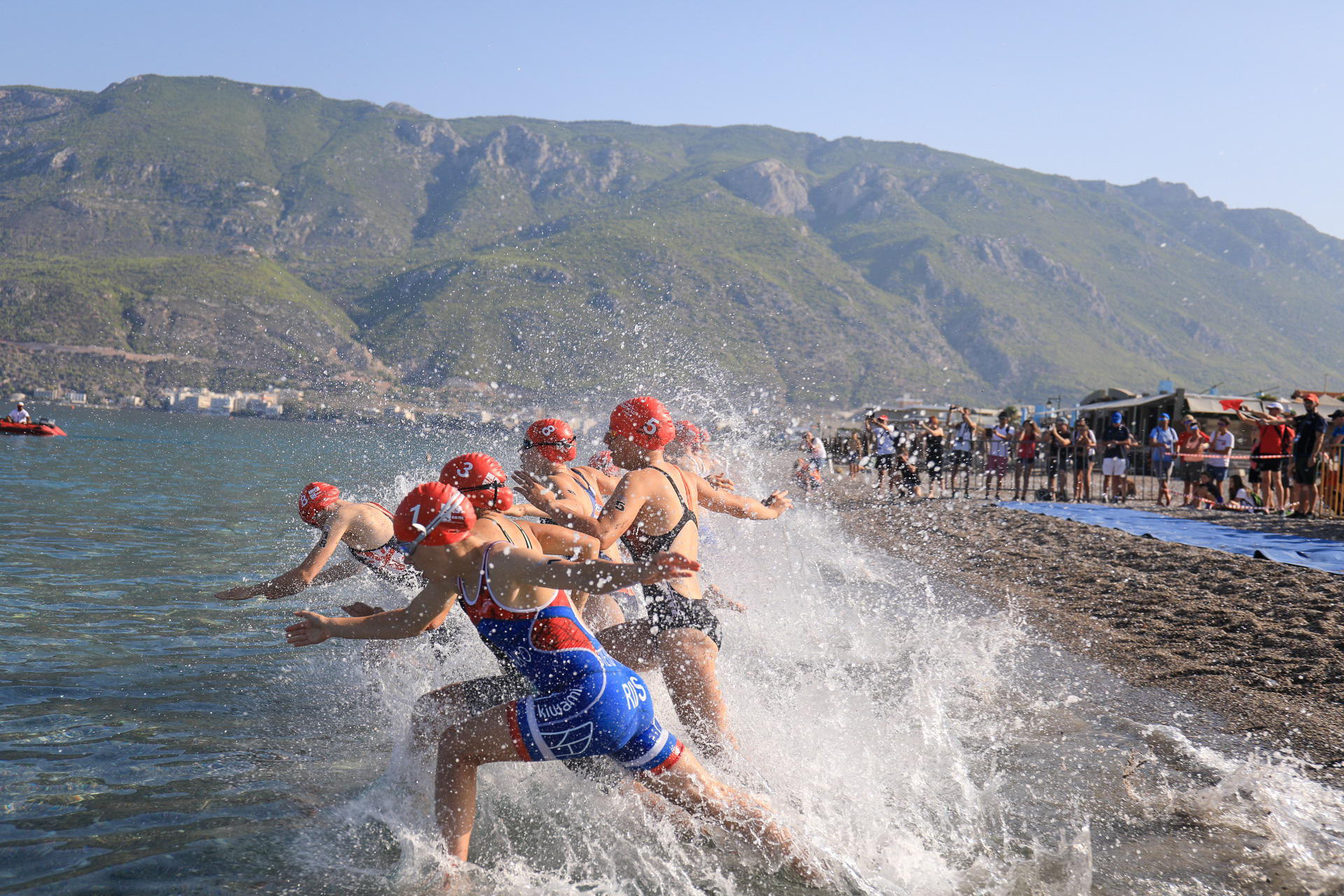
27 youth women, representing 16 nations, made it through to the final.

It was Switzerland’s Anja Weber who led them in the swim, with Hungary’s Márti Kropkó just behind her. This was Kropkó’s first international race and she showed great promise.
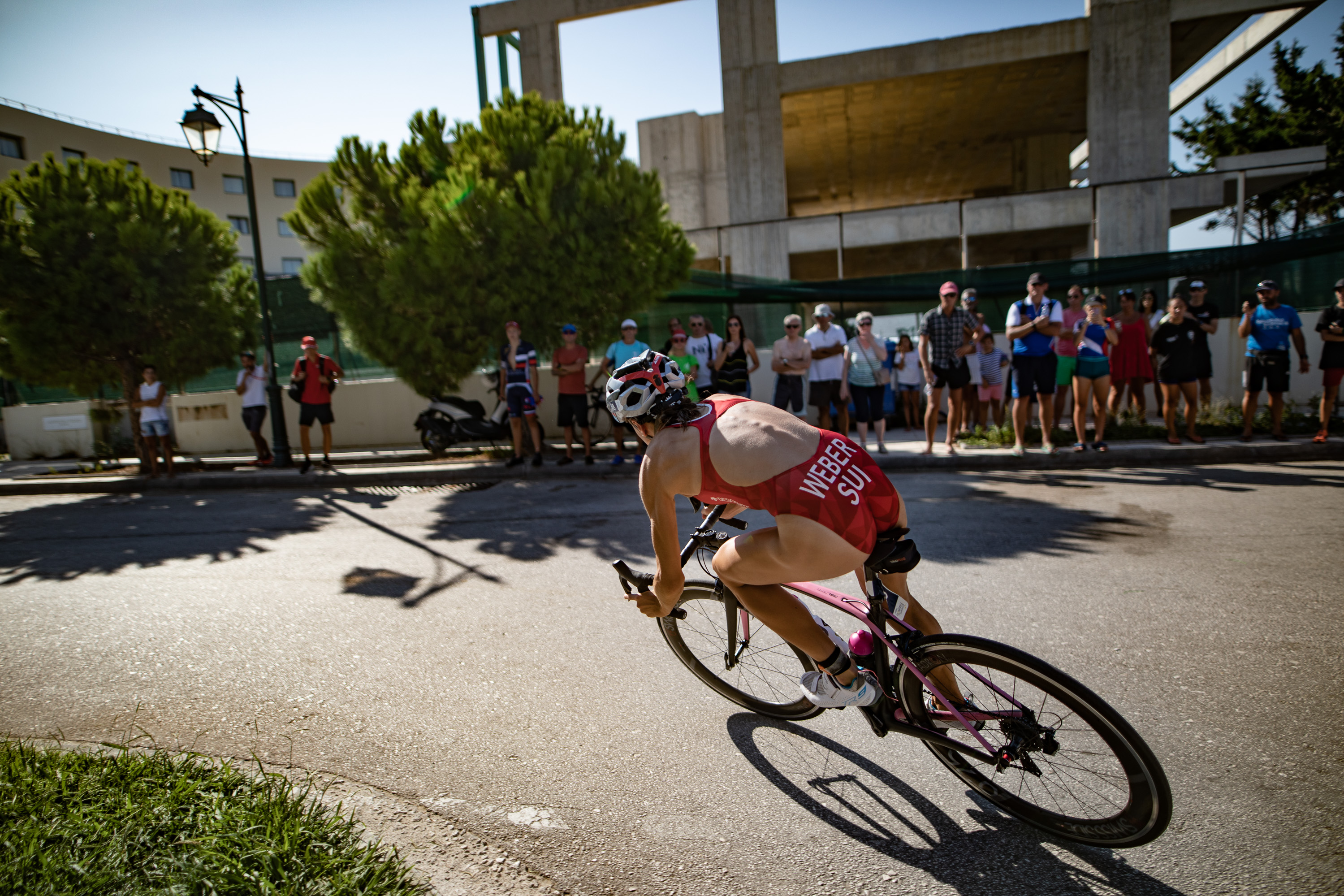
Weber had led them in Tartu recently and it looked as if the two could create a lead.
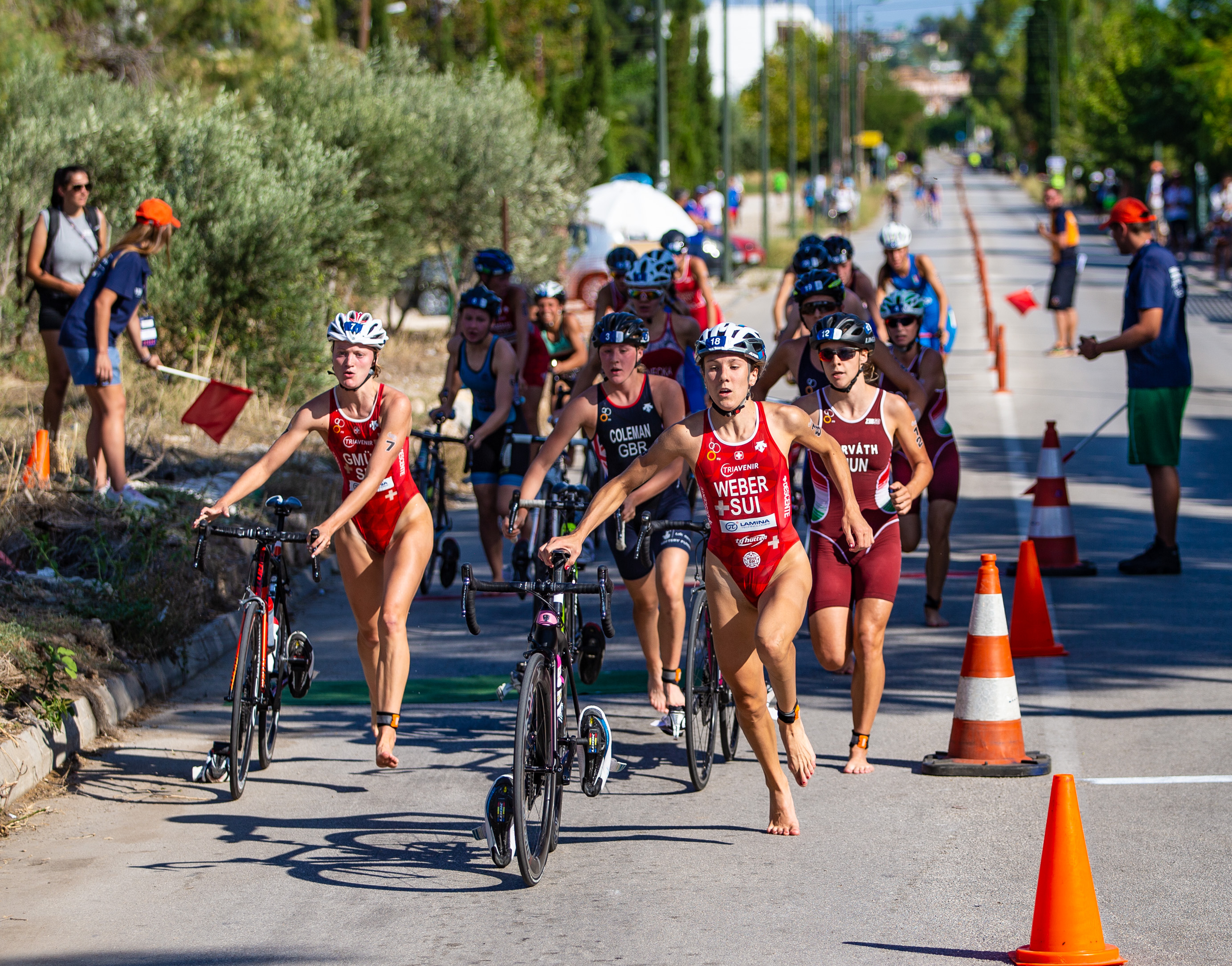
Once out on the bike, the pace slowed down as the athletes negotiated the turns soon there was a sizeable peloton eating up the laps.
The officials were on hand to ensure that any mistakes made in transition were recorded and the athletes, carefully briefed by their coaches, were extra careful with their dismount, racking the bikes and storing their equipment before they set off on the run.
It was out on the run course that the pack was broken and after all the early work that Kropkó had done, she could not match the pace of Great Britain’s Libby Coleman, teammate Karolina Helga Horváth and Russia’s Anna Goreva all pushing hard and using the turns to their advantage.
Despite digging deep, Kropkó could not hold the attack off but she fought hard against Belgium’s Hanne Peeters in the final stages of the run.
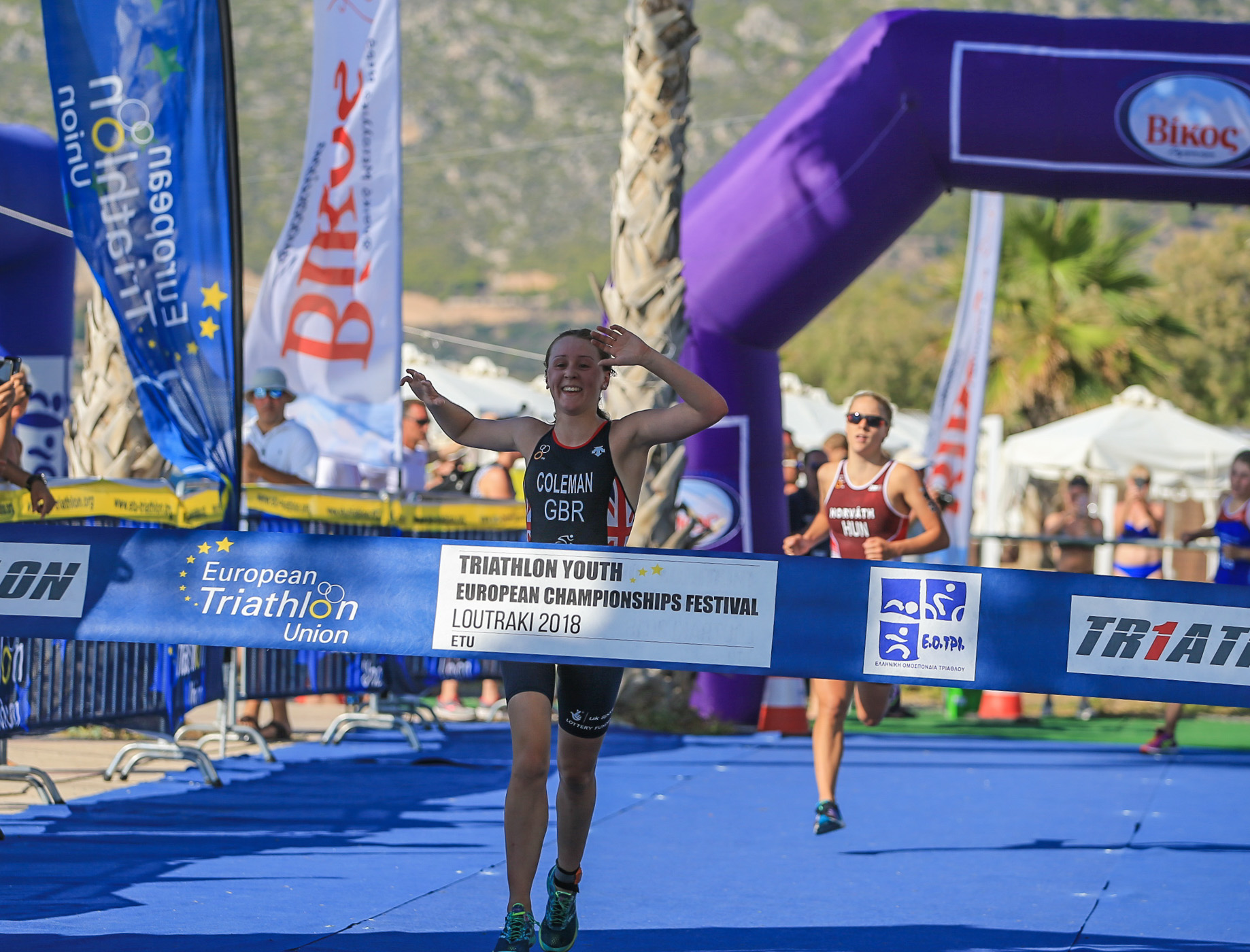
Crossing the line first and taking the title was Coleman. Just a pace behind came Horváth, showing that the Hungarian Federation has a very promising future for its youth athletes and it was bronze to Russia as Goreva edged out Peeters, who was just ahead of Kropkó, despite Freya Thomson’s injection of pace.
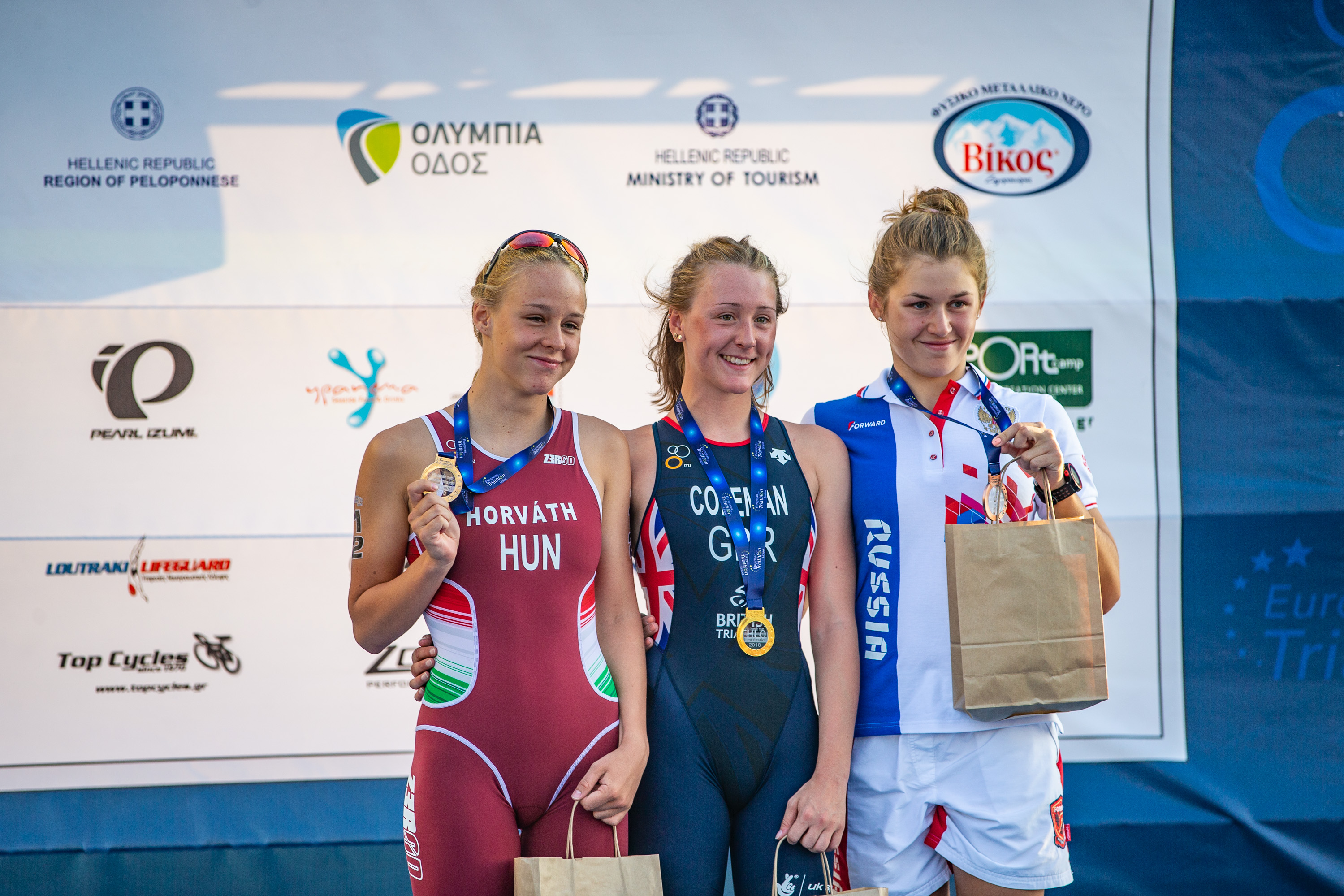
The first three athletes had crossed the line separated by only three seconds and when you look at that for a podium you can see just how well-trained the athletes are at this very young level. The next three, again separated by only three seconds underlines this view.
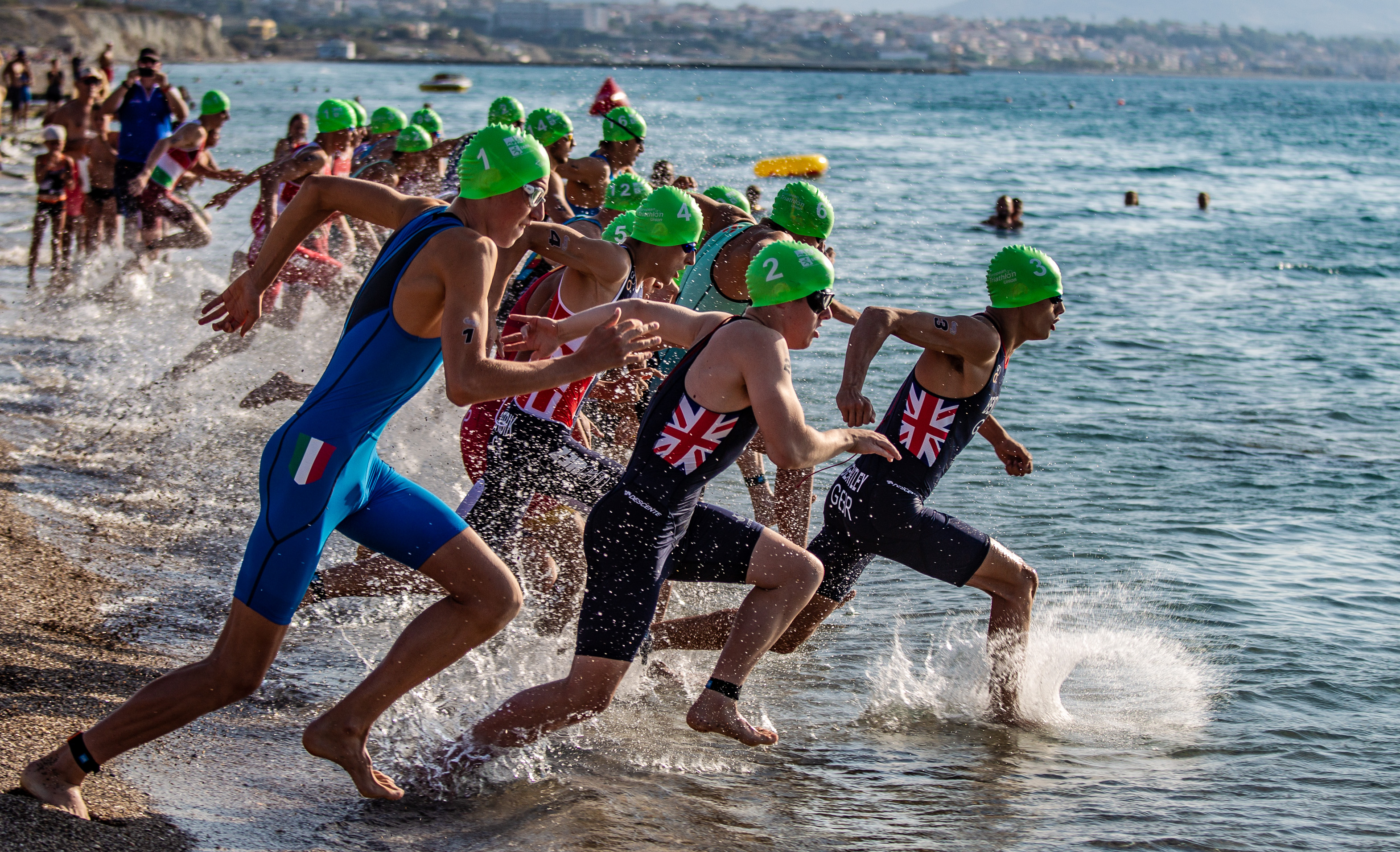
For the Youth Men, 14 nations made it through to the final and 27 athletes made their way to the blue carpet on the beach for the start.
The sea here is crystal clear and it was 4 athletes who created a small lead on the swim. Jesús Jiménez Gimeno ESP, Alessio Crociani ITA, Mark Vysotskiy RUS and Denis Kolobrodov RUS.
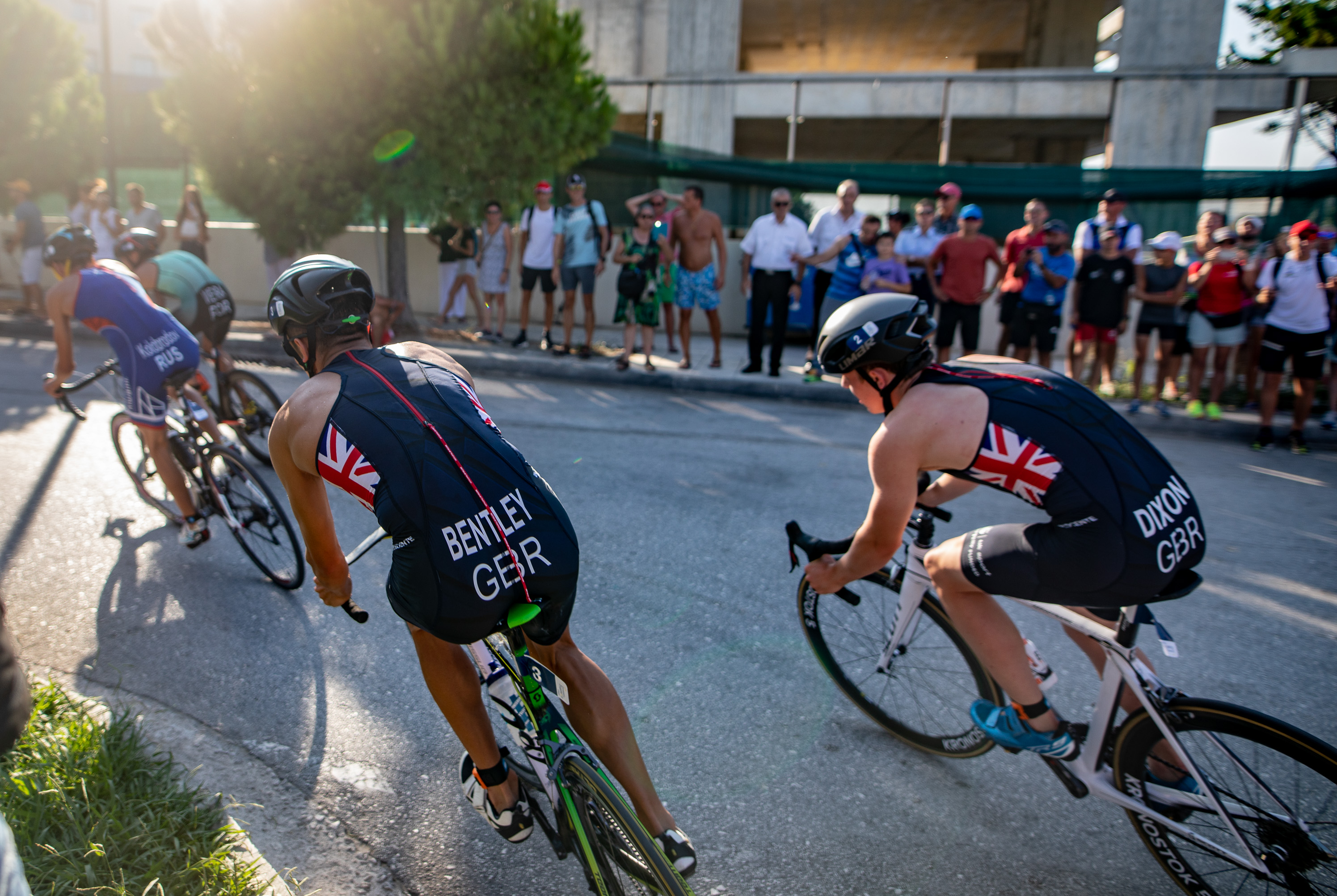
Their early hard work in the swim was soon snatched away by the powerful riding out on the bike and soon enough it was down to the final run.
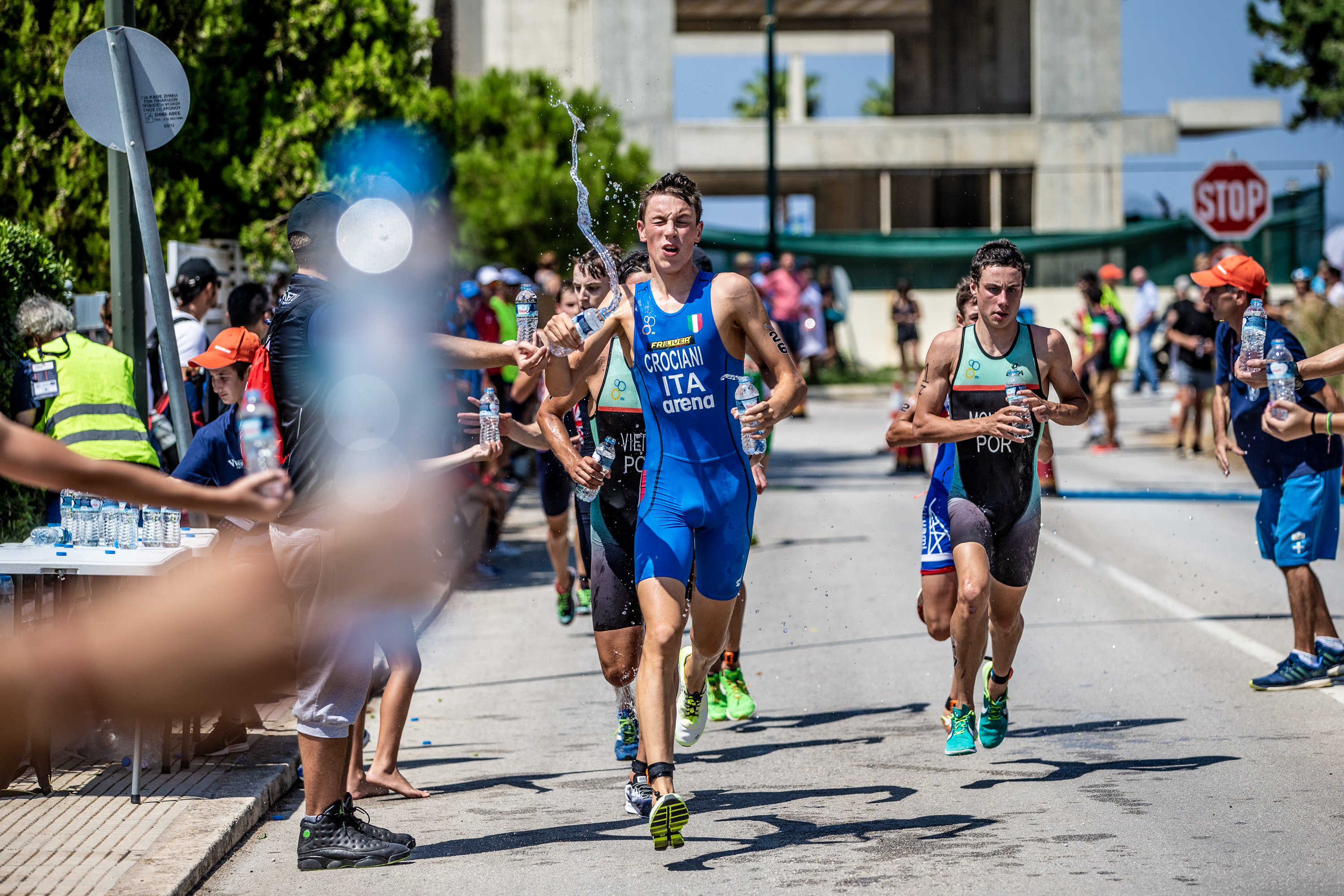
As the athletes set off from T2, an initial lead was see in the red uniform of Austria. Close by was a Portuguese uniform and then a British one.
Alexandre Montez POR and Jan Bader AUT flew their colours but … it was once again a British uniform that showed supreme and Connor Bentley, who had won all his heats ran easily to the front, pulling along with him only the strongest. He was unbeatable and has this season in the domestic races back home in England, been showing good form.
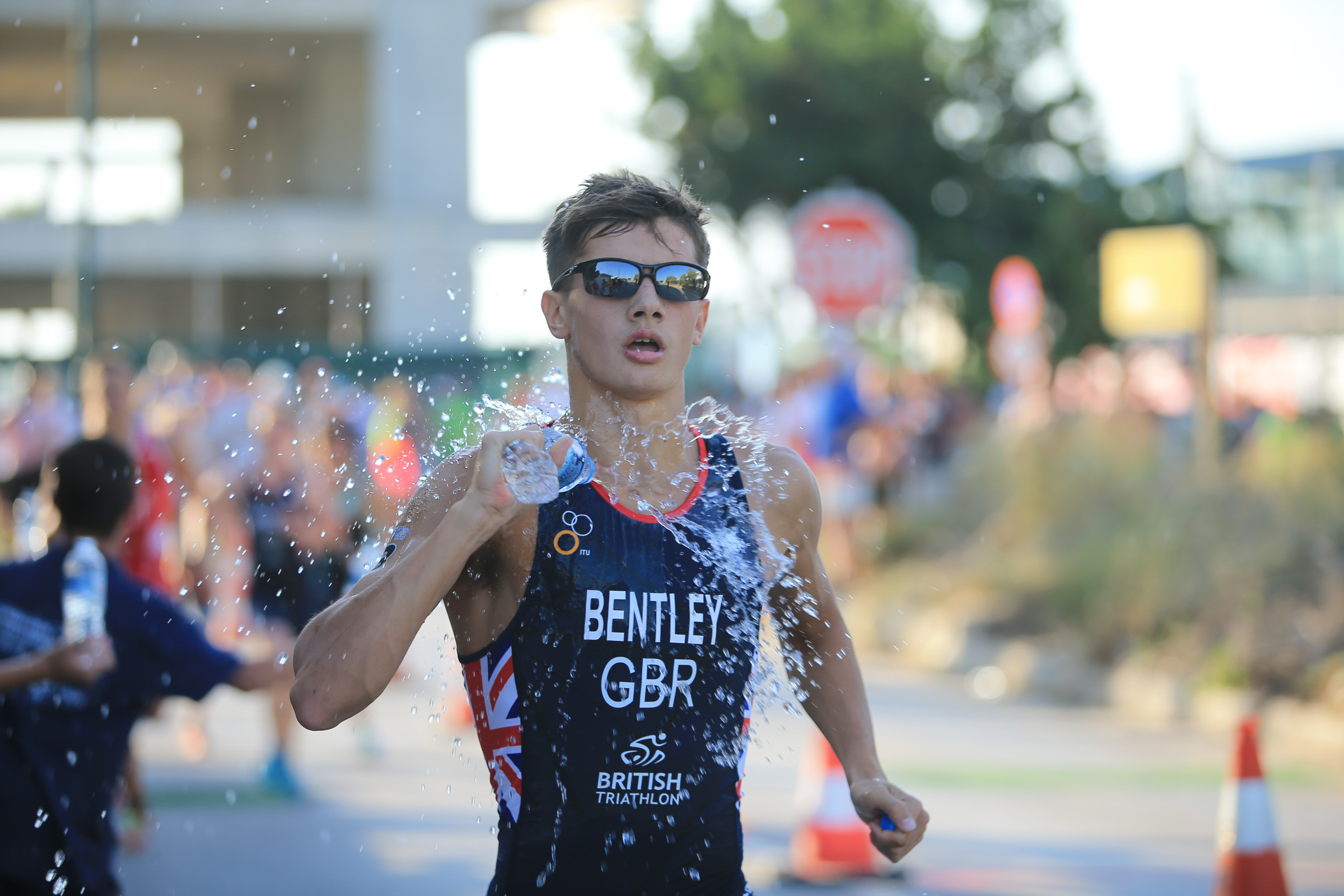
In the last few hundred metres of the race, Bentley made it clear that he would not, could not be beaten. Montez kicked just enough to create space between him and Bader but could do nothing to catch the Brit.
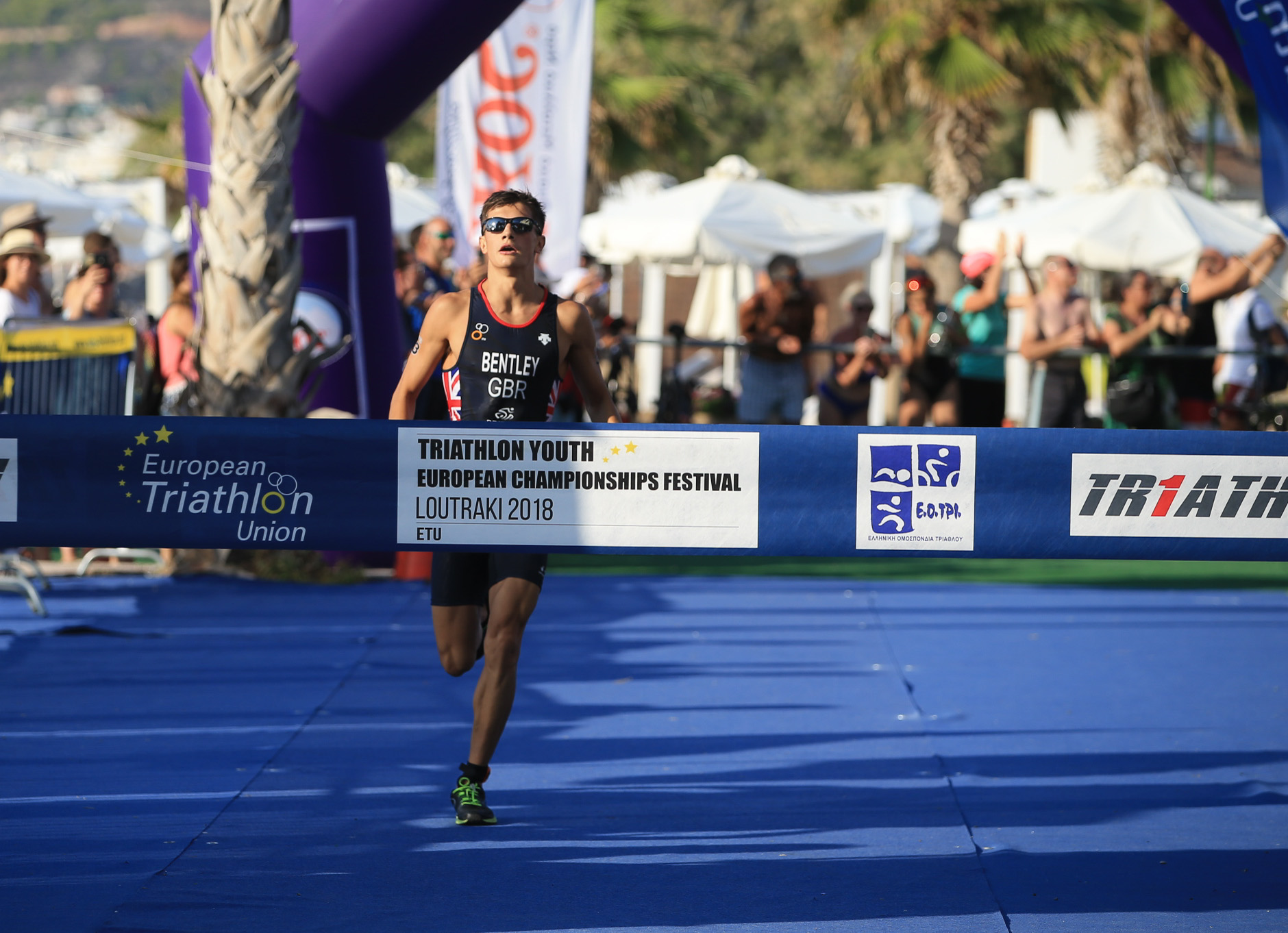
Bader glanced over his shoulder, seeing the chasing athletes now 20m back he knew he had the pace to claim the final medal.
With four athletes battling for a chance at the podium, there was a thrilling battle unfolding behind Bader and in the space of 2 seconds the 4th to 6th places were decided.
Portugal showed strong with three athletes in the top ten but it was jubilation and celebration for Team GB with a double gold in the finals.
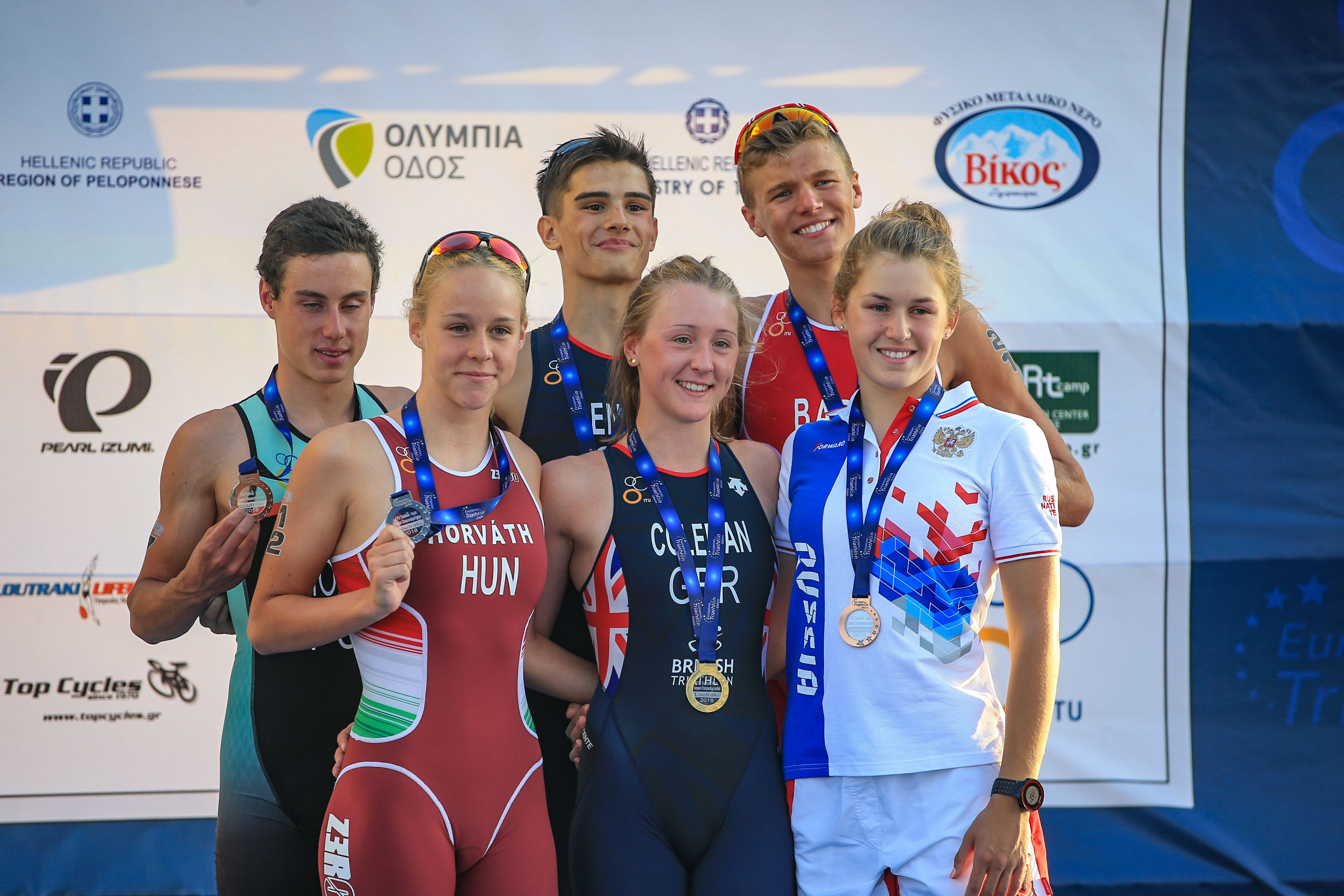
With the individual finals finished, it was then a chance the next day for the mixed relays. With Tokyo showcasing the Mixed Relay, there is now more interest than ever before in this inclusive format of racing. Sadly, due to some technical problems, the bike course had to be closed off and the race was run over a swim / run format. In order to give everyone the chance to race, some combined teams were created and this gave athletes from different countries the chance to race not against each other but with each other. This weekend, in Loutraki, Europe became a little smaller as borders fell to one side, as each team did its best to race and as they were united in sport.
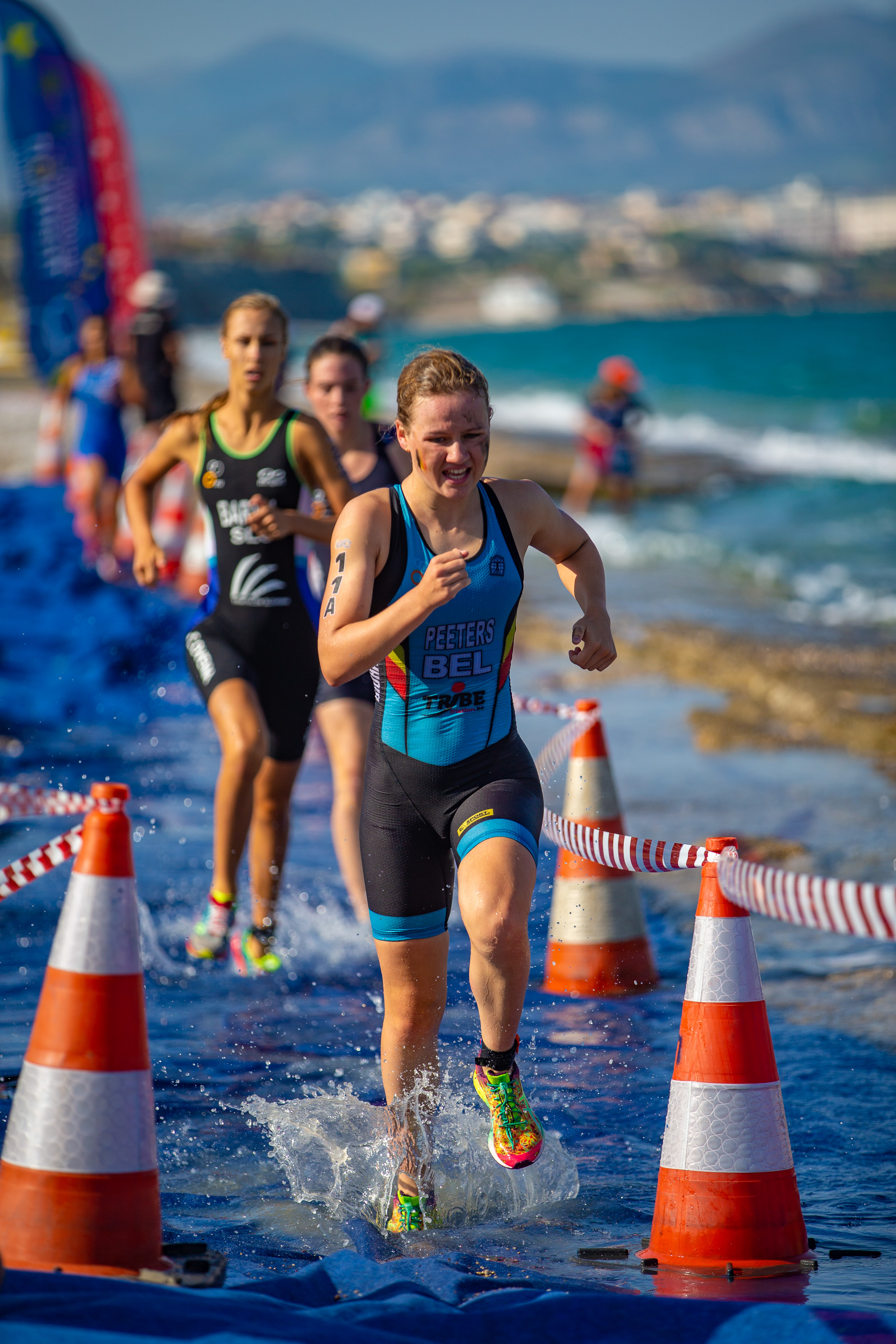
A total of 28 teams raced, with 8 of them being made up of mixed nationalities.
The first swim was close, with Inês Rico POR just a step ahead of Libby Coleman GBR. On her feet was Italy’s Angelica Prestia. Rico had more than enough pace to drop Coleman. 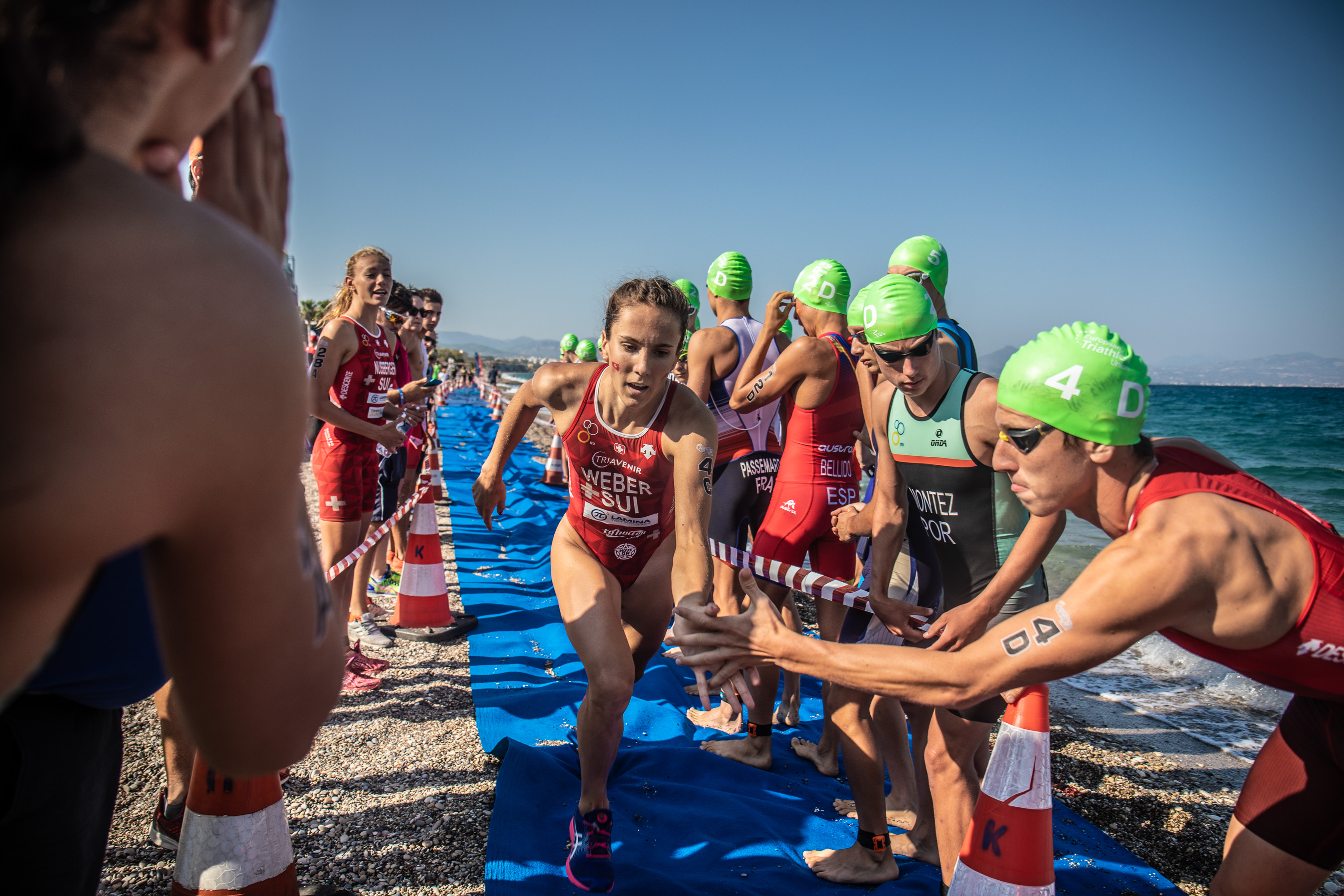
The French team upped the pace and soon were threatening the initial leaders and then Russia and Switzerland began to feature.
The French team lost time before the final handover but then we were treated to an amazing final leg, with Baptiste Passemard shattering the swim time of the British team’s last-leg athlete, Bentley. It was on the final run that Bentley was able to hold off the attack and it was Team GB that took the title.
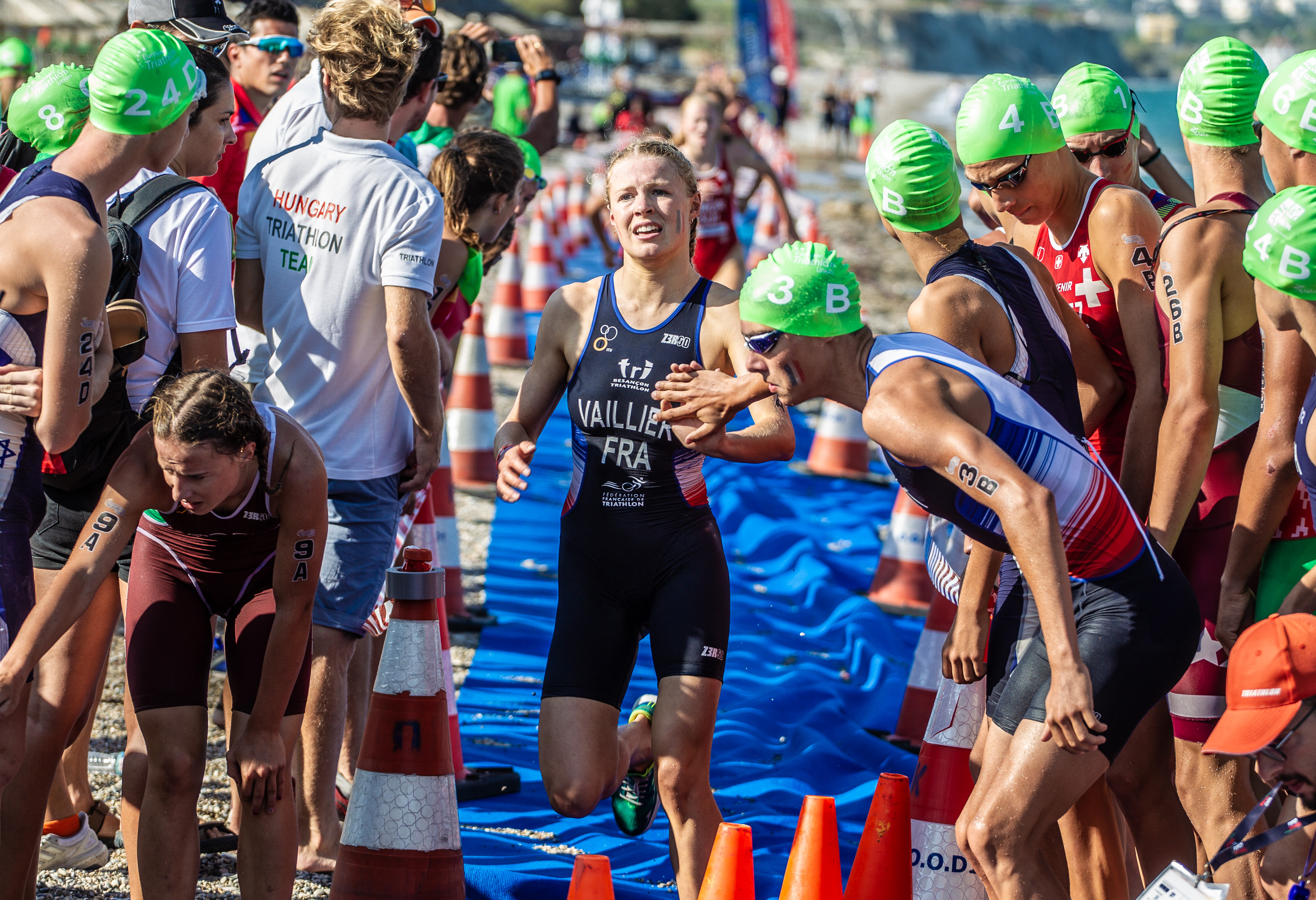
The French team, absent from the individual finals, came home to take silver and just three seconds behind them came Team Portugal.

As with the individual races, the times separating the teams was very small indeed. A clear indication that at the top end, athletes are really benefitting from the investment (both financial and in terms of time and resources) that the federations are making.

Even further down the results, there is a very clear indication that our European athletes, at this young age, are strong and in a position now to become even stronger as ETU plans ahead for the 2019 series of Development Camps and of course for the 4th edition next year of the ETU European Youth Championships & Festival.
We usually hear only from the winners but, for an athlete who finished well down the results, the perception of the race is just as valuable. What did Jesús Jimenez Gimeno ESP have to say?
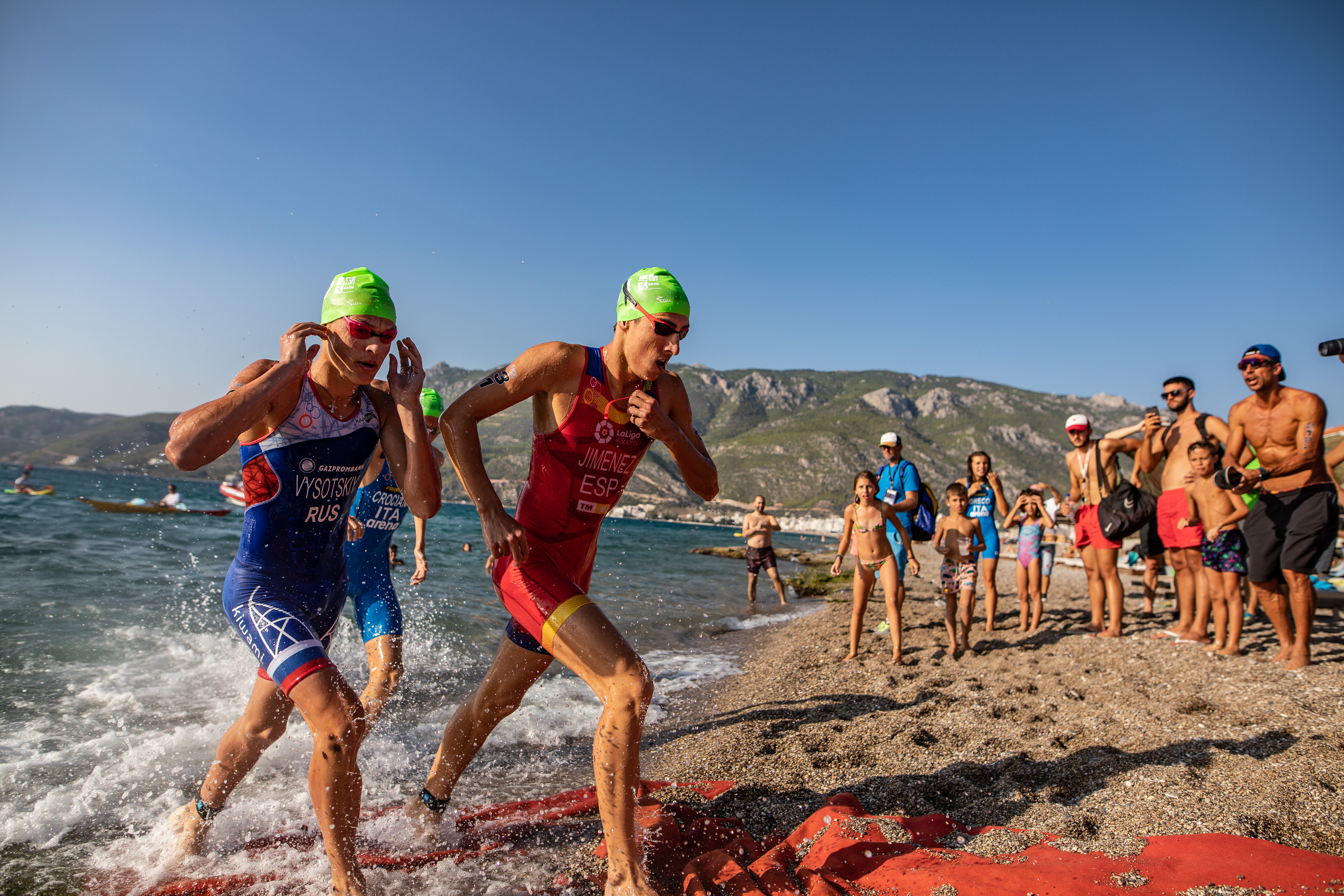
“Last weekend I took part in my first European Championships in Loutraki, Greece. I’m coming back home with unforgettable experiences, racing, making friends and with the team. I had a good race, where I became 21st. I’m proud of my first position on the water and a really good bike. I have to improve my running but I’m also proud of how I ran. We had a great Mixed Relay on Sunday that I enjoyed a lot. The best part of this trip is the friends we’ve made and the fun we’ve had with them
Next time I’ll try to improve and I’ll try to be on the top.”
We were unable to bring you as much information as we had hoped for a variety of reasons but know, from all the re-posts and shares of the videos that went onto the ETU Facebook Page and ETU Instagram Page that you were following the races.
A lot was learned this weekend and you can rest assured that your feedback has been noted.
ETU would like to thank George Spyros, of Energyphotos.gr for his great images, and ICARUS-Sports for their videos. They will be posting on their Facebook page and You Tube page, so keep checking there regularly.
ETU President Renato Bertrandi, despite doing a hundred and one things at the event still managed to share his videos with us and Technical Officials John Petrides and Andreas Galanos who sent us all their pictures.
A final very big thank you, for his regular supply of videos during the days of racing, goes to Russia’s Vitalii Nikitin. Without his updates, we might not have had the chance to see so much of the racing.
Article gallery
Related Event: 2018 Loutraki ETU Triathlon Youth European Championships Festival
| Results: Mixed Youth Relay | |||
|---|---|---|---|
| 1. | Team I Great Britain | GBR | 00:37:18 |
| 2. | Team I France | FRA | 00:37:22 |
| 3. | Team I Portugal | POR | 00:37:25 |
| 4. | Team I Russia | RUS | 00:37:28 |
| 5. | Team I Switzerland | SUI | 00:37:29 |
| 6. | Team I Hungary | HUN | 00:37:32 |
| 7. | Team I Spain | ESP | 00:37:35 |
| 8. | Team I Italy | ITA | 00:38:09 |
| 9. | Team I Israel | ISR | 00:38:20 |
| 10. | Team I Austria | AUT | 00:39:04 |
| Results: Semifinal 1 Youth Men | |||
|---|---|---|---|
| 1. | Alessio Crociani | ITA | 00:38:04 |
| 2. | Radim Grebík | CZE | 00:38:06 |
| 3. | Alexandre Montez | POR | 00:38:11 |
| 4. | Fynn Batkin | GBR | 00:38:13 |
| 5. | José Vieira | POR | 00:38:18 |
| 6. | Denis Kolobrodov | AIN | 00:38:20 |
| 7. | Mark Vysotskiy | AIN | 00:38:29 |
| 8. | Gergely Kiss | HUN | 00:38:30 |
| 9. | Paul Lebois | FRA | 00:38:54 |
| 10. | Jesús Jimenez Gimeno | ESP | 00:38:57 |
| Results: Semifinal 2 Youth Men | |||
|---|---|---|---|
| 1. | Connor Bentley | GBR | 00:38:29 |
| 2. | Alexandre Silva | POR | 00:38:31 |
| 3. | Elai Izhak Chaski | ISR | 00:38:33 |
| 4. | Rik Malcorps | BEL | 00:38:37 |
| 5. | Alessandro De Angelis | ITA | 00:38:39 |
| 6. | Ábel Sinkó-Uribe | HUN | 00:38:40 |
| 7. | Veikka Saren | FIN | 00:38:41 |
| 8. | Baptiste Massot | FRA | 00:38:46 |
| 9. | Andreas Carlsson | SWE | 00:38:52 |
| 10. | João Protásio | POR | 00:38:59 |
| Results: Semifinal 3 Youth Men | |||
|---|---|---|---|
| 1. | Daniel Dixon | GBR | 00:38:12 |
| 2. | Igor Bellido Mikhailova | ESP | 00:38:19 |
| 3. | Itamar Levanon | ISR | 00:38:22 |
| 4. | Afonso Do Canto | POR | 00:38:24 |
| 5. | Luca Luberti | SUI | 00:38:24 |
| 6. | Gergő Dobi | HUN | 00:38:26 |
| 7. | Jan Bader | AUT | 00:38:34 |
| 8. | Baptiste Passemard | FRA | 00:38:39 |
| 9. | Alexandre Ribeiro | POR | 00:38:40 |
| 10. | Antoine Vandebroek | BEL | 00:38:46 |
| Results: Semifinal 1 Youth Women | |||
|---|---|---|---|
| 1. | Julia Sanecka | POL | 00:41:03 |
| 2. | Márta Kropkó | HUN | 00:41:07 |
| 3. | Nora Gmür | SUI | 00:41:13 |
| 4. | Monika Bartol | SLO | 00:41:18 |
| 5. | Katharina Erber | AUT | 00:41:24 |
| 6. | Léna Vaillier-Francois | FRA | 00:41:27 |
| 7. | Heidi Juránková | CZE | 00:41:44 |
| 8. | Mariana Vargem | POR | 00:41:46 |
| 9. | Freya Thomson | GBR | 00:41:49 |
| 10. | Frida Nöu | SWE | 00:42:14 |
| Results: Semifinal 2 Youth Women | |||
|---|---|---|---|
| 1. | Barbara De Koning | NED | 00:41:52 |
| 2. | Inês Rico | POR | 00:42:05 |
| 3. | Emilie Noyer | FRA | 00:42:06 |
| 4. | Ida Burrows | SWE | 00:42:08 |
| 5. | Eva Daniels | LUX | 00:42:10 |
| 6. | Anja Weber | SUI | 00:42:12 |
| 7. | Chiara Lobba | ITA | 00:42:14 |
| 8. | Nikolett Ferenczi | HUN | 00:42:15 |
| 9. | Dominika Peszleg | HUN | 00:42:26 |
| 10. | Maeve Gallagher | IRL | 00:42:30 |


